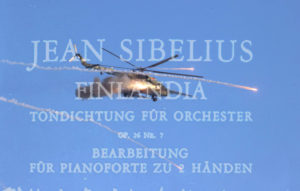 I was moved today by images and video of Ukrainian citizens taking up arms against Russian aggression. I contrasted those images with a drier, intellectualized stream of essays and opinion pieces from WaPo, NY Times, CNN, BBC, Atlantic, and others. I now know the history and conflicted consequences of NATO expansion, as well as how it was blocked in Georgia and now Ukraine by corrupted roadmaps for implementation. I expanded my understanding of Taiwan and colonial states’ self-determination after World War II. I read up on how Javelin missile systems work. I dipped into Honoré de Balzac’s “The Girl with the Golden Eyes” because, well, it was waiting for me. I bought Robert Altman’s M*A*S*H and watched half of it because Sally Kellerman died recently. It was all war, security, brutality, hopelessness, idealizations and global order, plus a layer cake of 19th-century Parisian capitalist critique wrapped up in interminable verbiage to resemble a short story (I stumbled along in French, truly, as well. It didn’t make it better.)
I was moved today by images and video of Ukrainian citizens taking up arms against Russian aggression. I contrasted those images with a drier, intellectualized stream of essays and opinion pieces from WaPo, NY Times, CNN, BBC, Atlantic, and others. I now know the history and conflicted consequences of NATO expansion, as well as how it was blocked in Georgia and now Ukraine by corrupted roadmaps for implementation. I expanded my understanding of Taiwan and colonial states’ self-determination after World War II. I read up on how Javelin missile systems work. I dipped into Honoré de Balzac’s “The Girl with the Golden Eyes” because, well, it was waiting for me. I bought Robert Altman’s M*A*S*H and watched half of it because Sally Kellerman died recently. It was all war, security, brutality, hopelessness, idealizations and global order, plus a layer cake of 19th-century Parisian capitalist critique wrapped up in interminable verbiage to resemble a short story (I stumbled along in French, truly, as well. It didn’t make it better.)
What was left to do?
Music, clearly. There must be perfect pieces and composers for this moment. First, we start with Ukraine itself, and Lysenko. Qobuz gives us Solmia Soroka and Arthur Greene’s Mykola Lysenko: Complete Music for Violin and Piano. Lysenko was an ethnomusicologist who specialized in Ukrainian folk music and represents the Romantic trends of his time, doing for Ukrainian fiddling what Brahms did for Hungary (cultural appropriation much?) or Dvořák and Smetana for Czech sensibilities.
But what of war, invasion, and resistance? We can start with Sibelius’s Finlandia because a day with Sibelius is always an epic adventure, and winter ups the ante. Finlandia served as an artistic attack on Russian censorship and russification, performed using alternative titles and lyrics.… Read the rest